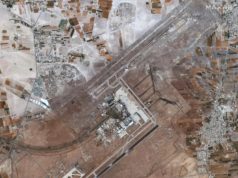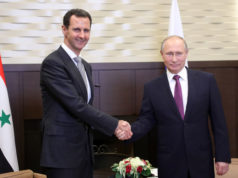Al-Qaeda’s Islamic State of Iraq and Syria (ISIS) claimed responsibility for a September 29 bombing in the Iraqi Kurdish region’s capital, Erbil. The attack killed six people and wounded more than 60, marking the first bombing in the usually secure region since 2007. A week earlier, regional elections of the Kurdistan Regional Government (KRG) were held, resulting in the ruling Kurdistan Democratic Party holding onto power.
Local sources say the bombing was part of a larger escape attempt from a prison holding terrorists. At the headquarters of the Kurdistan security forces, known as Asayesh, four men strapped with explosives opened fire on guards. After emergency workers arrived, an ambulance packed with explosives drove up to the gate and detonated. However, the ISIS bombers failed to break through the prison’s main gate.

A car bombing in Erbil was among at least five explosions in the Kurdish region in northern Iraq. Six or more people were killed. (Photo: EPA) |
In a statement posted to twitter, Islamic radicals justified the attack as retaliation for the KRG’s interference in Syria. KRG leader Masoud Barzani has been willing to assist Kurdish militias in Syria fight Arab Jihadists. The Kurds, who make up 10 percent of the population in Syria, are fighting to define their own autonomous region in Syria’s northeast. The clash between Kurdish forces and radical jihadists has pushed tens of thousands of Syrian Kurdish refugees across the border into Iraqi Kurdistan.
The Erbil bombing also highlights that Kurdistan is not immune to the implications increasing violence and sectarianism across the country. Iraq’s own Sunni insurgents may have assisted in the attack. Iraqi Kurdistan enjoys a high level of autonomy from the rest of Iraq, and has traditionally been stable in stark contrast to areas around Baghdad. As the violence continues in Iraq and Syria, Kurds across the region will have greater incentives to strengthen their autonomy.





